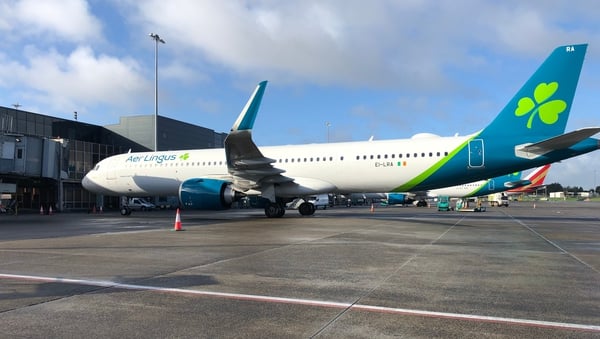The Irish National Teachers Organisation is to ballot its members on industrial action following their rejection of Government proposals on new entrant pay.
INTO members rejected the proposals to restore pay equality for teachers recruited to the public service since 2011 by 53% to 47%. Turnout was 55%.
All three teacher unions - the INTO, the ASTI and the TUI - have put the proposals out to ballot without any recommendation for or against them.
Last week, the Teachers Union of Ireland voted to accept the new entrant proposals by 53% to 47% - but continues to caution that the proposals of themselves do not deliver pay equality.
In a statement, the INTO said the result demonstrated members' commitment to securing pay equality.
It said the proposed agreement left several new entrant cohorts from 2011 onwards paid less than their colleagues, and that the membership had sought to "stand in unity with their colleagues in demanding full restoration".
The INTO's Central Executive Committee will meet next week to consider the result, and a forthcoming ballot on industrial action.
INTO General Secretary Sheila Nunan said that notwithstanding progress to date on pay equality, the proposed agreement by Government had failed to signal an end to pay inequality for all new entrants.
During the economic crisis, the government cut pay rates for new entrants by 10%.
As a result, over 60,000 of the State's 300,000 workforce earn less than their pre-2011 colleagues for doing the same work.
Some of those 60,000 people have now been on lower pay for seven years.
Around 8,000 of the INTO's 40,000 members - a fifth - are affected by pay inequality.
However, all INTO members voted on the new entrant proposals because of the potential consequences if they are rejected.
If the union go on to actively breach the current Public Service Stability Agreement - for example, with industrial action - all INTO members would face delays in payment of increments and pay restoration provided for under the deal.
The teachers' unions have noted that while the measures would improve the situation for new entrants, they will not restore full pay equality, as certain allowances which were also abolished for new entrants - some worth over €1,000 per year - will not be restored.
In addition, there will be no retrospection for the losses incurred since 2011.
Unions have also argued that the unequal pay differential will remain at the point of recruitment, as new entrants will not skip increments to catch up with their colleagues until the fourth and eighth points of the scale.
As a result, they believe that problems of recruitment and retention of teachers will remain.
The INTO has argued that some of the earliest post-2010 recruits will retain a pay difference of up to €49,000 over a 40-year career.
However, in a communication to members, the leadership said the current offer was the best outcome available from this process.
The INTO notes that the Government had stated that no additional funding would be available before the current Public Service Stability Agreement on pay expires in 2020.
However, the current new entrant proposals will deliver an additional €75 million to post-2010 public service recruits (not just teachers) beyond the original terms of the PSSA and within the Government's lifetime.
Unlike the majority of public service unions, the INTO had rejected the PSSA because of failure to address pay inequality for new entrants, but so far the union has not breached the deal and has thus qualified for pay increases under its terms.
It said that issues which remain to be resolved include elimination of the remaining differences in the early points of scale, restoration of the HDip/PME allowance and a return to the practice of teachers starting at point three of the incremental scale.
It also notes that many teachers commence their careers with part-time work for some time, resulting in difficulty in making a living.






